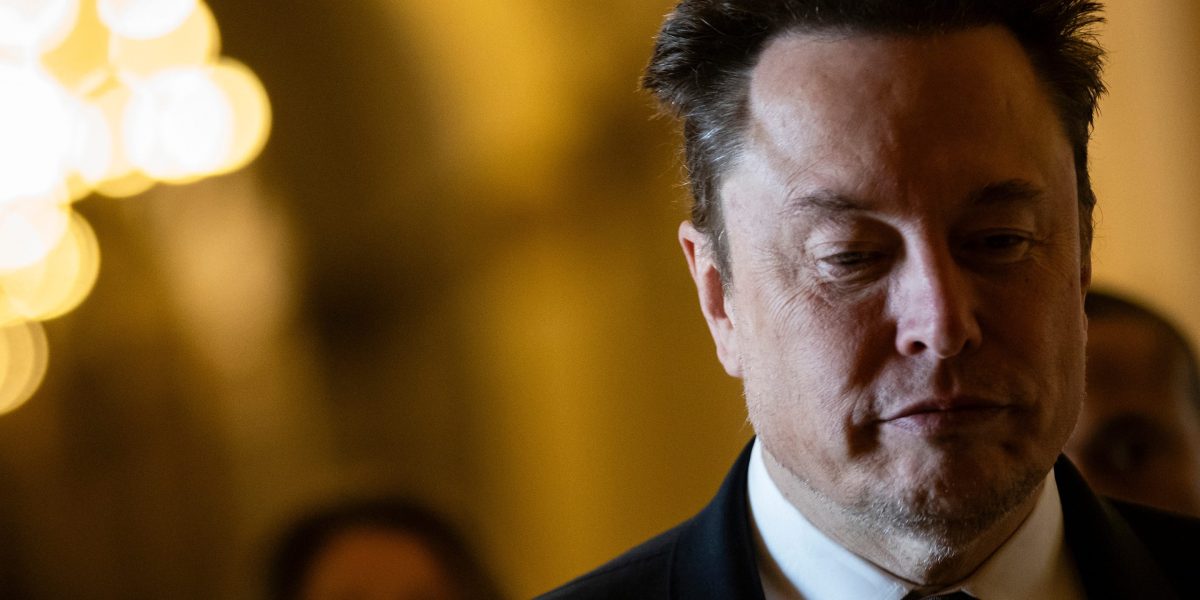
A judge this week halted a bitter attempt to give Tesla CEO Elon Musk a salary now estimated at $100 billion.
In the 101-page opinionChancellor of the Delaware Court Kathleen McCormick refused to reverse the previous decision to cancel Musk’s salary. In essence, she wrote, the arguments presented by the defense representing Tesla and some board members were “creative” but missed the mark. McCormick previously overturned Musk’s pay in a previous ruling, and after losing the lawsuit, Tesla held a new shareholder vote on pay in June 2024 in an attempt to pay Musk what Tesla’s board said was his due. Tesla Chairman Robin Denholm told shareholders the board supported the compensation package and rallied investors to re-approve Musk’s payout as a way to overturn the court ruling, which shareholders overwhelmingly did in a June 2024 vote that received 72% support.
Tesla told investors that the vote, which it called a “common law ratification,” could put to rest allegations that the board breached its fiduciary duties in awarding the pay plan. “When properly construed, common law ratification ‘reaches back’ to validate the challenged act from the time of its original enactment.”-Tesla wrote shareholders.
The court reasonably rejected this approach.
“There are at least four fatal flaws,” McCormick wrote in her decision. “A large and talented group of defense firms have creatively approached ratification arguments, but their unprecedented theories run counter to many rules of law.” (McCormick wrote in her decision that Tesla “advocated” the day it filed its April proxy statement asking shareholders to approve Musk’s pay, adding five additional law firms to the list of attorneys representing the defendants in the pay suit.)
In a post on X Tesla wrote that the court was wrong and plans to appeal the decision.
“This ruling, if not overturned, means that judges and plaintiffs’ attorneys are running Delaware companies, not their rightful owners, the shareholders.”
So what exactly led McCormick to her decision? Here are the “four fatal flaws” she outlined:
Fatal Flaw #1: Tesla had no procedural grounds to overturn the court’s decision
First, Tesla debuted the argument that the shareholder ratification vote was a “powerful elixir” that could cure wrongdoing in an April proxy statement, McCormick wrote. But Tesla had no reason to overturn the verdict based on evidence it created after the trial took place, the opinion said. Tesla lawyers later abandoned that position during oral arguments in court, abandoning more aggressive language and instead trying to “change the remedy” without challenging the court’s findings. Still, McCormick wrote, the attorneys sought “a verdict for the defendants on all counts,” which would have been tantamount to overturning the court’s decision in Tesla’s favor.
“Thus, the “only relief” sought by defendants at oral argument was to “change the remedy” of rescission and reverse the entire outcome of the case in defendants’ favor,” the judge wrote, punctuating her point with a quip: “That’s it.”
Fatal Flaw #2: Time. Common law ratification cannot be raised after opinion after trial
Second, Tesla raised this common law ratification defense after According to McCormick, the decision to revoke his pay package came after the trial — a full six years after the case was filed, a year and a half after the trial and five months after the court decision. No court has ever allowed shareholders to ratify after the facts have been settled, with sole an exception for the past 70 years, McCormick wrote.
“Wherever the outer limit of delay without prejudice is, the defendants have crossed it,” she wrote. “The court declines to exercise its discretion to allow defendants to raise the defense of shareholder ratification at this late stage.”
Fatal Flaw #3: Tesla’s approach was inconsistent with the established legal framework
The third and potentially most significant flaw that McCormick outlined had to do with the legal framework Tesla relied on. She wrote that shareholder votes alone were not enough to ratify a “transaction with a conflicted controller,” which is how Musk’s grant was described in McCormick’s previous opinion to waive his salary. “Transactions with conflicted controllers present numerous risks to minority shareholders,” she wrote. And especially in this case, there is the so-called “tunneling risk”, in which someone who controls the company can try to push through related party transactions.
Because of the significant risk involved, the court applies a more stringent standard of review that requires specific measures such as review by an independent special committee and an informed vote of shareholders, among other requirements. Tesla’s approach did not follow the established requirements.
“Defendants’ failure to pursue a basis for securing shareholder ratification in the controller conflict context provides an independent basis for rejecting the Ratification Argument,” she concluded.
Fatal Flaw #4: Lots of Material Misrepresentations
Finally, an April statement asking shareholders to confirm Musk’s salary after a court overturned it was “materially misleading,” McCormick wrote. She noted that “there are many ways in which the Proxy Statement misrepresents the truth,” but one notable failure was that much of what Tesla told its shareholders in that proxy statement was either inaccurate or simply misleading .
Each of the four fatal flaws in the ratification argument was sufficient to defeat the motion for reconsideration, McCormick wrote.
“Combined, they pack a powerful punch.”
Tesla did not immediately respond to a request for comment.





